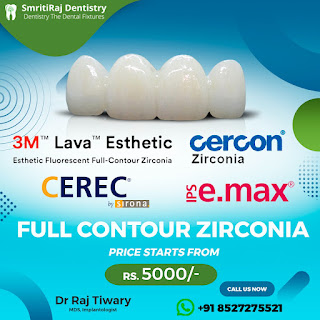What are full mouth dental implants, and how do they differ from traditional dental implant procedures?
Full mouth dental implants, also known as full arch dental implants or full mouth restoration, are a comprehensive dental treatment option for individuals who have lost or are on the verge of losing all or most of their natural teeth in one or both jaws. This procedure involves the placement of multiple dental implants to support a complete set of new artificial teeth.
Here's how full mouth dental implants differ from traditional dental implant procedures:
1. Extent of tooth replacement: Full mouth dental implants are designed to replace an entire arch of teeth (either upper or lower) or both arches, while traditional dental implants are typically used to replace individual missing teeth or several teeth in a specific area of the mouth.
2. Number of implants: Full mouth dental implants require a larger number of dental implants to support the new set of teeth. The exact number of implants can vary depending on factors such as the patient's bone density and the treatment plan recommended by the dentist. In contrast, traditional dental implants involve the placement of one implant for a missing tooth or a few implants to support a dental bridge or denture.
3. Treatment timeline: Full mouth dental implant procedures are usually more extensive and can require multiple stages. The treatment timeline may involve preparatory procedures such as tooth extractions, bone grafting (if necessary), and implant placement. It may take several months for the implants to fully integrate with the jawbone before the final set of teeth can be attached. In contrast, traditional dental implant procedures for individual teeth replacements or small bridges can be completed in a shorter time frame.
4. Prosthesis type: In full mouth dental implant procedures, the final prosthesis can be either a fixed bridge or an overdenture, depending on the patient's specific needs and preferences. These prostheses are securely attached to the dental implants, providing stability, functionality, and aesthetics. Traditional dental implant procedures often involve the placement of individual crowns or bridges supported by implants.
5. Bone condition: Full mouth dental implant procedures can accommodate patients who may have experienced bone loss in the jaw due to long-term tooth loss or periodontal disease. In some cases, bone grafting may be necessary to rebuild the jawbone and provide a stable foundation for the implants. Traditional dental implant procedures rely on an adequate amount of healthy bone to support the implants without the need for extensive bone grafting.
It's important to note that the suitability of full mouth dental implants versus traditional dental implant procedures depends on various factors, including the patient's oral health, bone condition, and specific treatment goals. A thorough evaluation by a dental professional is necessary to determine the most appropriate treatment option for an individual's unique situation.



Comments
Post a Comment